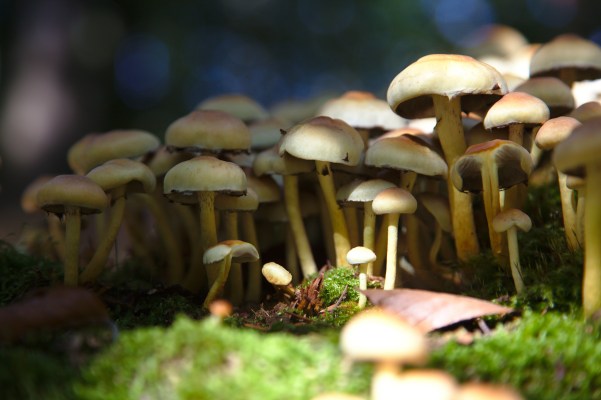Genetically modified crops are in the midst of a metamorphosis thanks to new gene-editing technology.
The latest example is a white button mushroom genetically edited using CRISPR, or the ability to snip out and rearrange parts of an organism’s DNA.
The U.S. Department of Agriculture says it won’t regulate the mushroom because it doesn’t pose a possible threat like GMO plants using the DNA of foreign bacteria might.
A plant pathologist at Penn State, Dr. Yinong Yang, altered the mushroom’s DNA so it won’t brown when it comes in contact with oxygen; changing two letters in the code makes the fungus more resistant to browning.
But the Penn State scientist wasn’t sure if his genetically altered mushroom would need USDA clearance when he first created the modified species last October.
The USDA’s Animal and Plant Health Inspection Service (APHIS) is set up to protect America’s agricultural environment from problem plants — including crops altered through genetic engineering using donor DNA from bacteria or viruses to make plants more pest resistant.
But here’s where CRISPR presents a loophole for GMO — Dr. Yang didn’t add any foreign DNA to the mushroom. Instead, the tweak happened with the mushroom’s own genes.
CRISPR is a fairly new technology, breathing new life into the biotech field and clearly raising questions around regulation. Would the USDA consider crops with alterations of their own DNA problematic?
The mushroom is just one case out of 30 involving some form of gene-editing technique in the last five years. But so far the answer is no.
In a letter dated April 13 to Penn State, the USDA’s APHIS confirmed the mushroom is firmly planted outside its scope.
“APHIS has no reason to believe that CRISPR/Cas9 white button mushrooms are plant pests. Therefore, consistent with previous responses to similar letters of inquiry, APHIS does not consider CRISPR/Cas9-edited white button mushrooms as described in your October 30, 2015 letter to be regulated pursuant to CFR 7 part 340,” the USDA statement read.
Dr. Yang is now mulling over the possibility of starting a business around his mushrooms.
